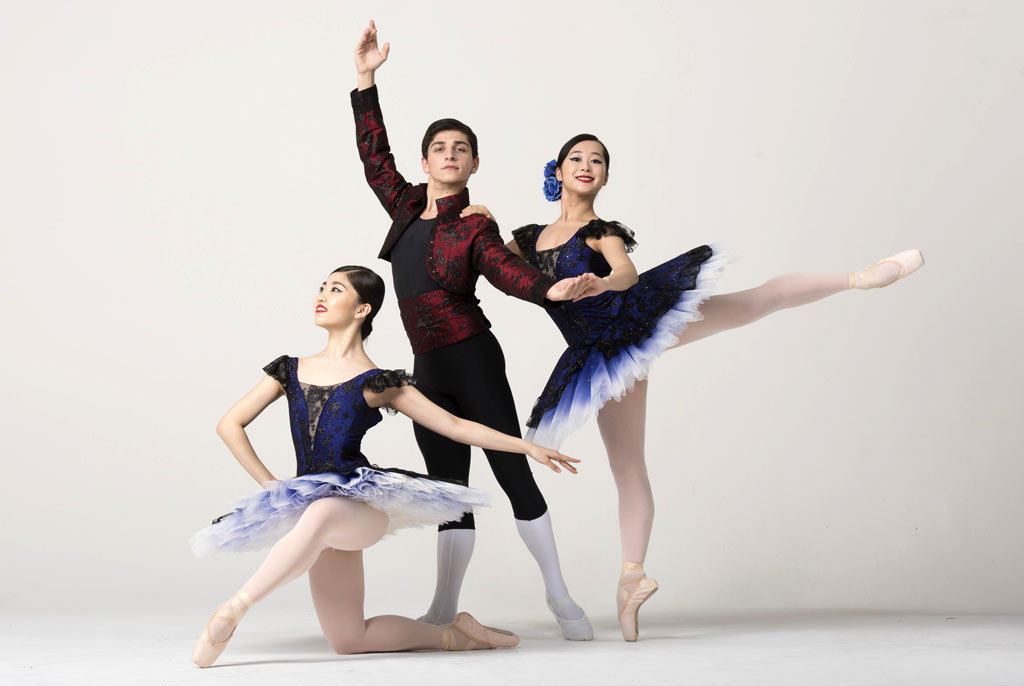
As I have written elsewhere, Bristolians are well served for theatre. Venues high-brow and lower compete for our disposable income with, on the whole, impressive results. Balletomanes fare less well and must devour what crumbs come their way and be thankful. Last night the Redgrave Theatre (a gem of a place if ever there was) played host to the graduates of the Central School of Ballet whose touring arm, Ballet Central, performed what could almost be described as a guide to dance for anybody unfamiliar with the medium. Pieces ranged from the outright classical, in which the dancers could display their familiarity with and mastery of the classical vocabulary of ballet, to contemporary and narrative pieces which enabled them to bend their hard won skills and techniques to a range of creative endeavour.
Their first piece, Celebration, by Christopher Gable CBE (the founding director) was in the classical style and involved a fluid interchange of personal relationships. The graceful flow of intimacy was enhanced by the costume designs of Richard Gellar whose Empire line diaphanous dresses complemented the lightness of the movement.
In Insinuare, a contemporary pas de deux with Prima Tharathep and Joseph Vaughan, the expressive possibilities of a faultless technique were explored. The two exhibited an easy familiarity with each other characterized by smooth lifts and a sensuous flexibility in this piece by Leanne King and with music (as in the previous dance) by Philip Feeney.
A confession is in order regarding Repetition (2) Change, by Sharon Watson. I hadn’t looked at my programme notes beforehand and read something into the work quite other than what was intended. (But such I suppose is the fate of much contemporary dance.) This was a very enjoyable work which I had convinced myself had an Ancient Greek theme, which I thought I also detected in the graphic use of Lorna Clayton’s cape-like red and black costumes. A certain martial verve and strength in some of the movement – which cascaded between both sexes – and passages of sensuousness did nothing to undermine the assumption. However, my programme tells me the piece is about the complexities of the genetic code. If there’s a moral here I’m not sure what it is, nor if it is one I could do without.
The Pas de Troix which featured Mai Ito, Kanami Sano and Mark Samaras was an opportunity to exhibit individual virtuosity with the two girls in particular exhibiting almost preternatural ability in holding poise on point.
The first half was rounded off by a particularly poignant work, which featured, and was indeed about, two dancers, Emma Denham and Paddy Randall, not themselves graduates, but who had been helped to recuperate from devastating neurological traumas with the help of the Central School of Ballet staff (not to mention Bristol Children’s Hospital – department of Neurosurgery). Any gaps in skill were more than compensated for in the back-story of, This Time Now , by Leanne King, which gave the work an emotional impact that technique alone can only hope and strive for.
The second half of the programme was given over to a narrative work, War Letters, by Christopher Marney. The company moved easily between different styles of music (Glenn Miller to classical) in a piece which covered the second world war from the front to the home-front and homecoming. By turns sensitive, playful and dramatic it lent a certain poetry to the lives of ordinary folk and gave the company the chance to stretch itself into an area which required (and received) a close emotional involvement from the dancers.
The evening overall was an accomplished technical and artistic success and will undoubtedly set the dancers on course for rewarding careers. Graham Wyles 17th July 2016
Photos by Bill Cooper

